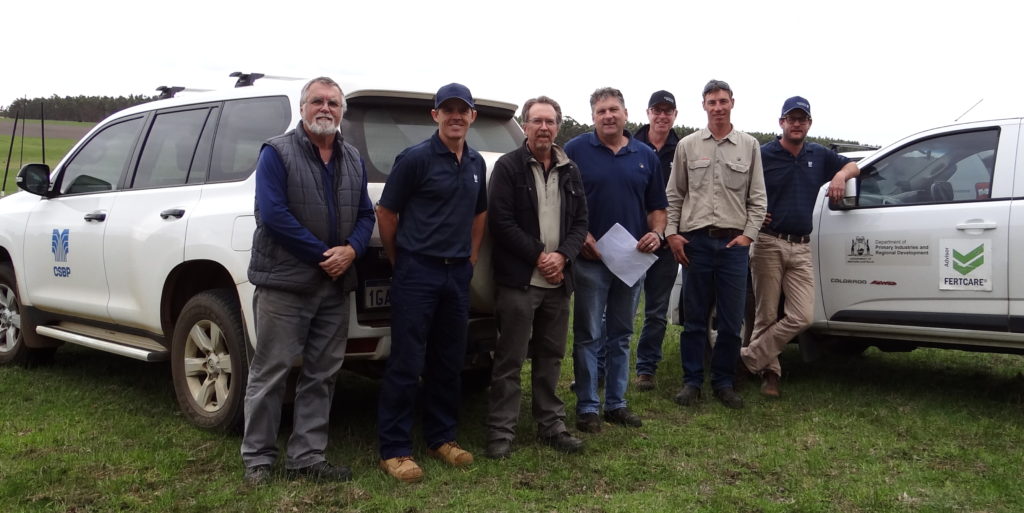Thirty-six fertiliser trials will be established across the South West over the next three years to test phosphorus requirements under local conditions, and with new pasture species, as part of the Smart Farming Partnership project.
The trials will explore innovative technology and practices to improve nutrient use efficiency on grazing farms in the South West and reduce excess nutrient runoff into waterways and estuaries.
To design the trials and improve industry and farmer confidence in evidence based fertiliser management, representatives from major fertiliser companies, dairy and beef industry groups, scientists, farmers and state government agencies met in Busselton last week.

Project Coordinator Dr Kath Lynch from the Department of Water and Environmental Regulation was impressed with the interest and support from the industry bodies represented on the technical group.
“Working with farmers and industry to improve nutrient use efficiency in grazing systems is a win-win for famers and the environment,” Kath said.
“Beef and dairy grazing are the largest source of nutrients entering estuaries in the South West, so improving fertiliser management in grazing systems is a cost-effective means of improving water quality and reducing production costs to farmers.”
Garan Peirce, District Manager from CSBP fertilisers attended the technical group meeting and said the project was a very positive initiative.
“I’m confident the project will build on current industry knowledge of efficient and effective nutrient use for the longer term benefit of farmers and the local environment,” Garan said.
Also in support of the project was Ralph Papalia from Summit Fertilizers who welcomed the Smart Farming Partnership project because it allows input from all sections of industry involved in trying to improve fertiliser use efficiency in environmentally sensitive areas.
“Our company is very happy to be involved with the collaborative trials as they will help provide an up-to-date, scientific and economic basis for fertiliser recommendations in the South West grazing industries,” Ralph said.
The assembled cross section of producers, industry reps, agribusiness, catchment management bodies, government research agencies, and their willingness to collaborate, positions the program very well for success.
Cameron Allan, Program Manager from Meat & Livestock Australia said the participants were an excellent mix to address this multi-faceted issue requiring underpinning science, demonstrations, communication and establishing a common value message from advisors and agribusiness.
“The issues being addressed by the project bridges the production needs of both regional beef and dairy producers, resource management, applied research, agribusiness and information delivery,” Cameron said.
Grazing fertiliser trials established in the Peel-Harvey, Leschenault, Geographe, Hardy, Wilson and Oyster Harbour catchments in May will run over three years.
The project is supported by the Regional Estuaries Initiative with funding from the Australian Government’s National Landcare Program.
